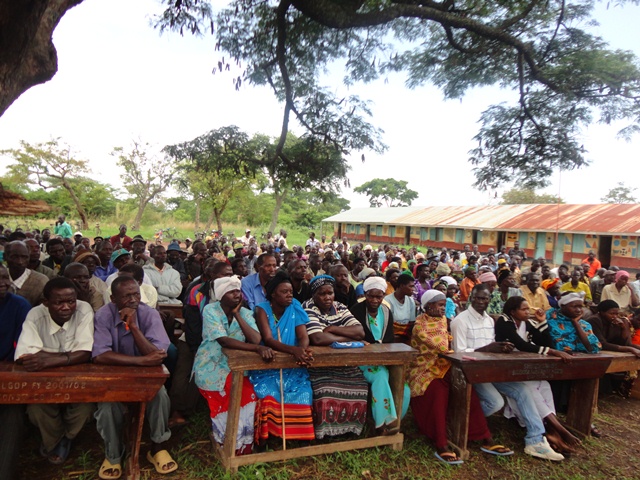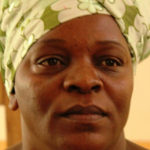Women from households whose land was part of the over 29 sq kms acquired by government more than five years ago for the proposed Shs15.3 trillion oil refinery in Kabaale-Buseruka, Hoima district, have written to their Members of Parliament (MPs) and other stakeholders to come their rescue.
The women, who are part of 83 households that are yet to be relocated by government, are demanding for their immediate relocation, food, restoration of education and health services in addition to reinstatement of their cultural rights and the right to life.
“There is a lot of hunger in our homes because government refused us to grow crops such as cassava, bananas, oranges, mangoes, guavas and pawpaws. With the bad weather conditions that we experienced last year, our crops like cassava were destroyed, leaving us without food,” they say in a statement, adding that they are living ‘threatening’, ‘stressful” and ‘depressing’ lives.
The women also blame government for stopping them from growing cash crops such as coffee and tobacco which they say has left them without money to cater for family basic needs.
Without food and income, their children have been left to suffer. “We are suffering too much. Our children keep demanding for food and other basic needs but we cannot provide these needs because we neither have food nor money,” the women say.
Yet food is not the only right that their children are being denied.
“Schools such as Nyahaira Primary School and Kyapaloni were closed because following compensation, some pupils and teachers relocated to other areas,” the women say, adding that without food and teachers, pupils dropped out of school. Moreover, those who finished P7 and were headed to secondary schools could not proceed because there was no money for school fees. “Some of our boys and girls are at home doing nothing and we fear that the girls will become pregnant,” the women say.
According to the statement, the refinery project affected 926 pupils and 1, 344 children under five. Today, over 400 children whose families are yet to be relocated by government are out of school.
The women also allege the children are missing out on the ongoing national identity card registration exercise whose deadline is August 30, 2017. The data captured during the exercise will be used in the issuance of index and registration numbers, reports have noted.
The women note that their cultural rights and the right to life are not being respected. “The distance to the nearest health centre is too far and with no sources of income, we do not have money to use for transport to the health centres or buy medicine. Our patients have ended up dying yet finding a burial place is a problem,” the women say.
the refinery project affected people’s property including grave yards to the extent that finding alternative burial places for loved ones has been problematic, the women say. “Four deaths have been experienced as the 83 families await relocation and each death brings with it the pain of burying loved ones in burial grounds forbidden by culture,” they say.
The women also note: “Amidst us, we have widows who stay with orphans and have no one to lend them a hand. We also have elderly women and men and there are also people who are HIV positive. The people with HIV are supposed to have a balanced diet but they cannot because they are poor and are not allowed to grow fruits. These people’s lives are in danger because of too much depression, stress and fatigue.”
The refinery project affected 7, 118 people of whom 181 were elderly, 106 were chronically ill and 201 were disabled.
Because of the above stressful and desperate situation, some women have been abandoned by their husbands.
“Our husbands abandoned our homes because there is no food. They now have other women who are taking care of their needs,” the women say.
The women say over 10 households have also found themselves homeless as their houses collapsed.
The women want government to relocate their families within one month, return their children to school, provide food relief and adequate health services.
They also want government to provide water and electricity in the settlement area and to also follow the recommendations of the refinery project’s Resettlement Action Plan (RAP) and to avoid forcing them into a camp where their traditional lifestyles will be affected.








